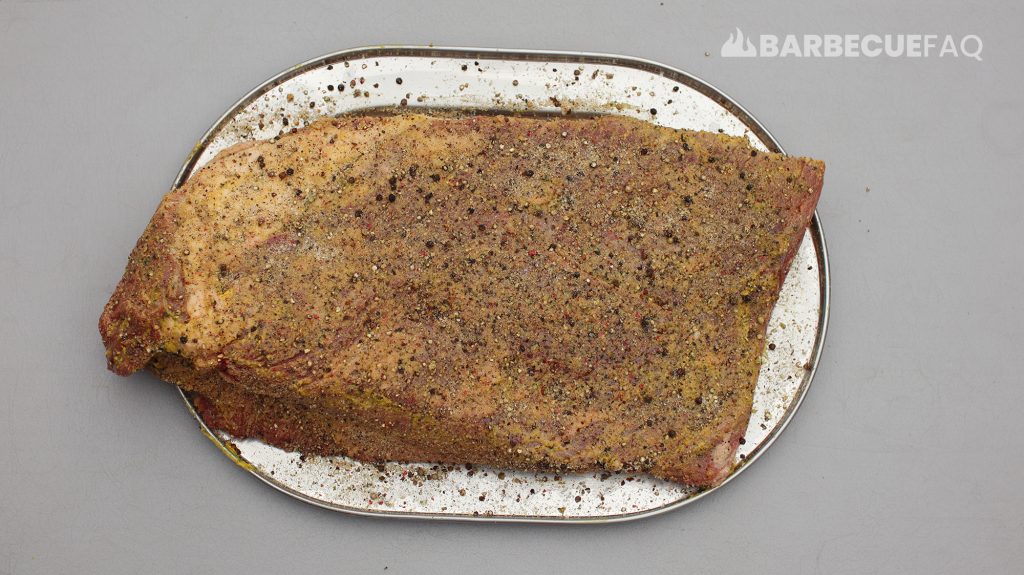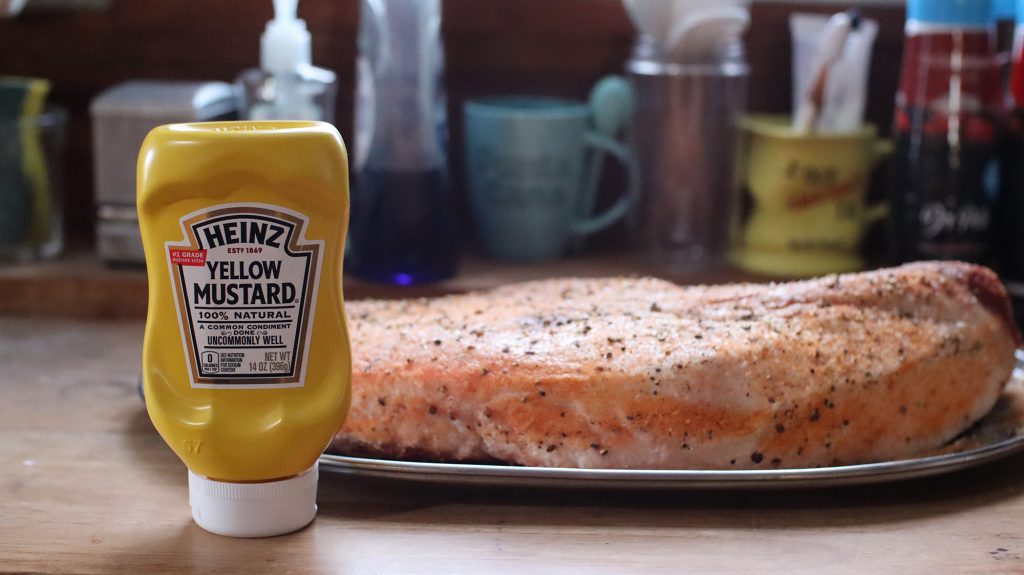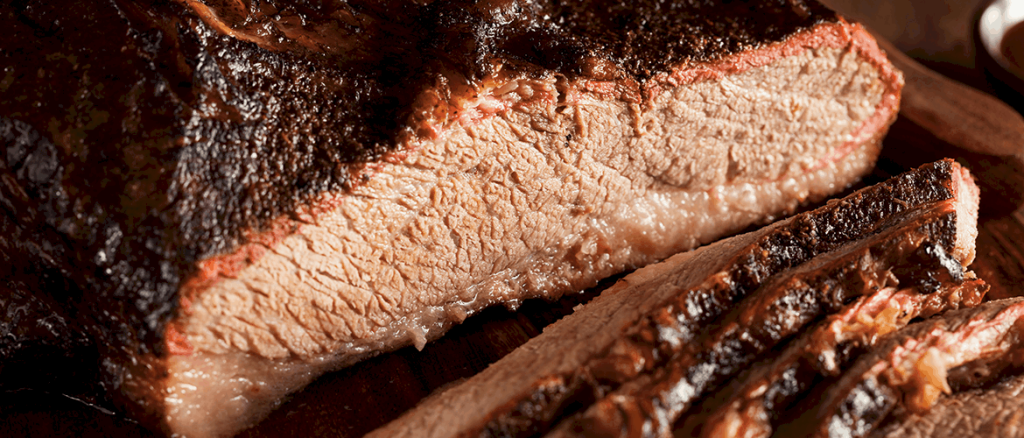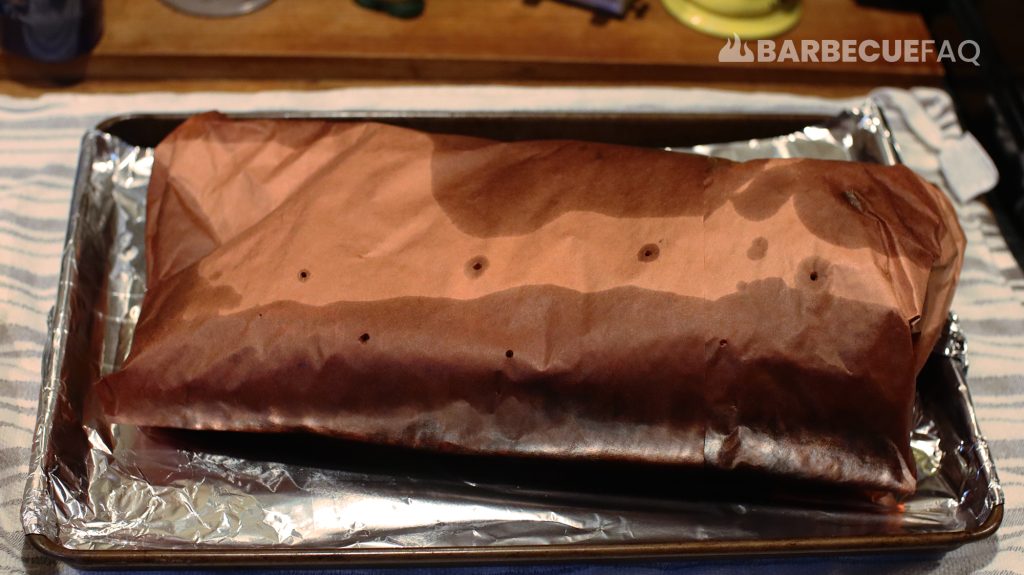The reason people use mustard on brisket is so that their dry rub sticks better to the meat – for this reason people will call it a “binder.”
The reason people use mustard specifically is because it’s cheap and most people have it in their refrigerators.
I don’t like using a mustard binder for my brisket.
I’ve noticed is that if I go too heavy or if the mustard layer is too thick it causes more problems later in the cook.

I’ve also had several times where I’ll completely lose bark at some point during the smoking process; Almost like an old paint chip flaking off.
Since brisket lays flat, water does the job just fine.
A Look at Yellow Mustard’s Ingredient List
Almost all yellow mustard is made from the same ingredients:
- Water,
- Vinegar, and
- Crushed mustard seeds

One of the most popular is French’s Yellow Mustard.
The ingredients include:
- Distilled Vinegar
- Water
- #1 Grade Mustard Seed
- Salt
- Turmeric
- Paprika
- Spice
- Natural Flavors
- Garlic Powder
When the liquid ingredients are cooked they vaporize which leaves behind small quantities of the other dry ingredients.
All of these ingredients are used in barbecue rubs.
Meaning, when the dry rub is applied over the mustard, they’re indistinguishable.
But, if your goal is to impart a mustard flavor on the meat, the amount of mustard seed or ground mustard in a mustard binder isn’t enough to be tasted.
Alternatives to a Mustard Binder for Brisket
If you don’t have mustard on-hand, any of the following will accomplish the same thing:
- Water or no binder
- Worcestershire Sauce
- Pickle Juice
- Cooking oil
- Apple cider vinegar or fruit juice
- Hot Sauce
- Mayo
Experiment and see what you like.
Personally, I don’t notice a difference with any of them.




